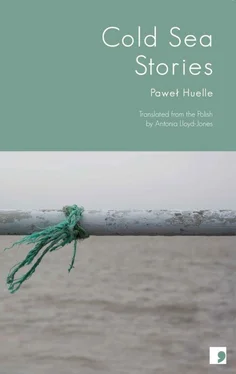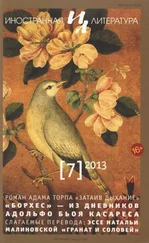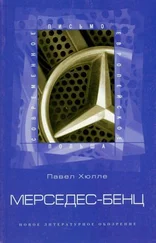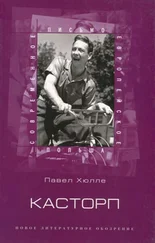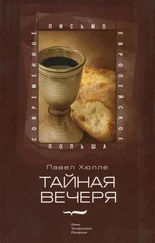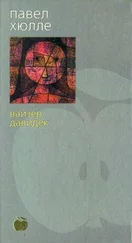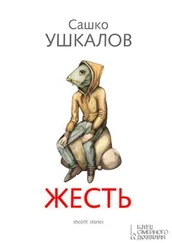‘From this year,’ he said, looking up at the sky, ‘you’re going to study music – Jonatan will come to us three times a week. You have plenty of time until the autumn to make your choice.’
‘But,’ I asked rather uncertainly, ‘what am I to choose between?’
‘What do you mean? The violin or the piano.’
He definitely preferred the piano, but he didn’t say a word. Only when his father was tapping out the ash from the bowl of his pipe against the wet edge of the pond did he inquire: ‘So what about the Prussians? Did they live in our house?’
His father laughed long and loud.
‘But I told you, there’s nothing left of them. Well, almost nothing. Just a few words, that’s all. For instance, our lake has two names, even in the official atlas. Krzywe and Ukiel. And the Prussian name, Ukiel, means just the same as Krzywe: “crooked”.’
Back in his tiny bedroom in the loft, as he listened to the endless croaking of the frogs punctuated by the hooting of an owl, he kept mindlessly repeating: ‘Ukiel-dukiel, crooked crook-iel’, as if it were a sort of incantation.
Now there were some belated party-goers driving down the street. A dirty Land Rover was dragging a chain of strung-together cans behind it. One of the drunken passengers kept firing a shotgun again and again into the sky and shouting: ‘ Socialismo o muerte! Venceremos! Viva Fidel! ’ Somewhere nearby a car alarm started to wail and some stray cats began to yowl, which the new, centre-right district administration had been battling with for a few months to no avail. He fetched his address book and chose Marta’s number, which he hadn’t called for about seven years. After a long wait he finally heard a ringing tone, and straight after that a soft, female voice.
‘Hello?’
‘Marta?’
‘No, it’s not Marta. Who’s that?’
‘Oh, I’m sorry. This is Joachim. Is Marta there?’
‘I’ll just fetch my mum.’
Finally he heard his sister’s voice.
‘Is that really you?’ she asked. ‘What’s happened?’
‘Nothing. I just wanted to come. For a few weeks. Is there a chance you can put me up?’
Marta did not reply immediately. Only after a few seconds, as if she had to have a good think about it, did she answer in a hushed tone: ‘But yes, of course, come over!’
III
The snow came like salvation. On the third day after the wet, grey holidays, large flakes of it began to fall on Jesionowa Street, coating the overflowing dustbins, cluttered little gardens and dog messes at the edge of the bald lawns. Joachim was delighted: the whiteness engulfed not just the world of things, but also spread itself like a soft mantle over his skittish, anxious thoughts. Even the places he had missed, and which immediately after his arrival had seemed to him hideous and unrecognisable, now took on a neutral softness thanks to the fluffy white snow. In fact, from the slightly bow-shaped street, built up on either side with angular terraced houses, he’d been unable to reconstruct the old road that passed the pond and led to the woodshed; but once a thick layer of snow was covering them, the ugly, identical houses no longer looked as awful. Even the mechanic’s workshop, which had been erected on the site of the old pond – a heavy concrete lump with a row of dirty glass bricks running under its flat roof – did not offend Joachim’s gaze as painfully now that it was covered by a white hat.
It went on snowing for four days. Then, along with a cold, icy wind from the east came a powerful frost. At last it all calmed down and, at a temperature of minus fifteen, the sunlight brought an austere brightness out of the wintry landscape.
Joachim went down to the cellar. Among the empty jars, cardboard boxes, broken furniture and piles of magazines he discovered a pair of old ice-hockey skates. They had probably belonged to Andrzej: his brother had the same shoe size as him. As he was perching on a small stool in the hall polishing the leather – dried stiff by time – Marta came out to him from the kitchen.
‘Are you angry?’ she asked, lighting a cigarette.
‘No, why should I be? But your son-in-law is an awful yob. Fancy sending away the piano tuner the day before Christmas! I’d have paid him, since I ordered him. Couldn’t you have called me down from upstairs?’
Marta took a small glass jar from her apron pocket and tapped ash into it.
‘And those comments,’ he calmly went on, without looking up from the boot, ‘those stupid allusions. So I’ve come here to get my money back, have I? Couldn’t you have told him I gave up my share in your favour long ago?’
‘I did tell him,’ said Marta shaking her head, ‘but you can see for yourself. He bosses everyone around. With four children.’
He wanted to add that in his view all four of them were dreadfully badly behaved and nasty, just like their father, or rather not brought up at all, but as soon as he looked at Marta, he went straight back to his interrupted job. There were tears in her eyes.
‘You have no idea how hard it is,’ she said, slowly stubbing out her cigarette. ‘Ever since Marian died, I’ve lost all my energy. Are you really going to skate on those?’ she asked, changing the subject. ‘Wait a moment, I’ll get you some woolly socks.’
As he walked down hill to the lake, Joachim felt depressed. He couldn’t shake off the stifling, unpleasant atmosphere in the house. He felt sorry for Marta, but he had no influence on her life. Everyone, including her daughter, seemed to ignore her. And exploit her. The retired librarian cooked, washed, ironed and did the shopping, but was shown absolutely no respect for it. She was like an old servant who is only spoken to in case of need. All these days she had avoided talking to him one-to-one. He’d noticed that as soon as her son-in-law appeared, she fell silent. And yet there was at least one thing they ought to clarify. For years on end, month in, month out, Joachim had sent her 150 US dollars. Nowadays it was an almost ridiculous sum, but under the communists, converted into the zlotys of the day, it was rather a lot. When he wrote to say he couldn’t support her any more, that he was having some temporary problems and that he hadn’t been able to pull himself together since Julia died, she hadn’t answered, nor had she written for several years. He realised she had her own troubles, but after all this time shouldn’t she at least – even just a word or two – say thank you?
Luckily the sun was shining, and the powdery snow was crunchy underfoot. Down by the lake Joachim spied out the abutment of the old landing-stage, where he sat down and quickly changed his boots. The wind, which had been raging the previous night, had formed deep drifts in some places, but there were also whole expanses of ice that were free of snow, as if specially cleared for him. He raced ahead at great speed, turned wide circles, spun large and small figures of eight, and felt a surge of happiness. As he was returning to the house, the violet shadows of early dusk were already being cast on the snow. The family dinner was over by now, but Marta was waiting for him specially, and they ate together, the two of them, in the kitchen.
‘Do you remember the old, abandoned barn on the hill?’ he asked.
She did. The three of them, including Andrzej, had crept up there on the dot of noon. The air was rippling in the heat as they ran round the wooden skeleton chanting: ‘Bare-bottomed man, come out of the barn! Bare-bottomed man, come out of the barn!’ As soon as something moved inside, they raced off all the way to the grave, shouting at the top of their voices.
Why exactly had they called that place the grave? Old Maudzis, who did his ploughing every spring with a horse harnessed to a ploughshare, was always finding disintegrating clay pots there. Then he would cross himself and shout against the wind: ‘By Potrimpe, by Patollu, by Verszajte divine, touch thou not this grave of mine!’ Andrzej did the funniest imitation of him. First he crossed himself just like the old man, then he stuck his bum out in his direction, puffed up his lips, and let out a monstrous, raucous fart. Maudzis would yell swear words and throw clumps of earth at them. Sometimes he threw a shard from a clay pot.
Читать дальше
